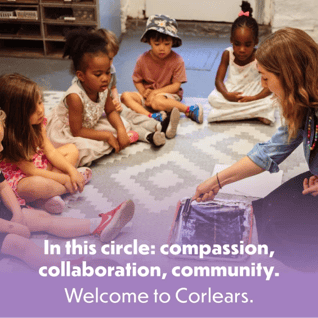Self-reflection will unpack a lot of pieces for you, and shine light in the places of discomfort. Increasing your own comfort with discomfort will give you the courage to discuss identity, address stereotypes directly, explain differences, introduce language to name your child’s observations of the world, and be a role model and guide for them. The more you begin noticing and naming what is happening, they will begin to notice, name and ask questions, too.
The Washington Post reported on this topic recently in their parenting section: We need more white parents to talk to their kids about race. Especially now. At the end, author Chandra White-Cummings names the three habits of life that anti-racist educators are often encouraging anti-racist white allies to incorporate into daily life:
- Normalize nonwhite ethnicities by including books, movies, TV shows and other cultural expressions by people of color alongside those by whites, and expanding your social, professional and faith circles to include people and families of different ethnicities and doing the same for your kids. This will show children that you value people from all ethnicities and count them worthy of friendship and social association.
- Educate yourself and your kids accurately about history. Correct the prevailing narrative that promotes a benevolent and peaceful beginning to this country by reading accounts like the New York Times’s 1619 project, and The Washington Post’s project about teaching the truth about slavery in schools. Include historical accounts involving Japanese Americans and Native Americans as well as other ethnicities.
- Talk often about current events and posts they might see on social media related to those events. The tendency is to think that children are too young to have these conversations, but any conversation can be adapted to be age-appropriate. The current coronavirus pandemic is a perfect time to talk, because there are loads of opportunities to help kids recognize harmful racism and understand why it continues to happen. Seek out stories that cover issues by including opinions and information from diverse voices and sources.
Here, you will find a PDF copy of Anti-Racist Parenting by New Demographic, and here is an expansive Resource Guide For White Teachers & Parents Developing Racial Consciousness and Moving into Action that you can access via Google Drive. I have shared this resource broadly within the Corlears community as it offers various access points and includes multi-modal ways to begin engaging in anti-racist work, including books, podcasts and films.
This year, the Corlears Board of Trustees read the book “White Fragility: Why It’s So Hard for White People to Talk About Racism” in accountability groups. The group checked in after every few chapters to discuss questions to engage in deep conversation. I highly recommend reading one of these suggested books with an accountability partner – whether that be a family member or friend who is engaging in raising their racial consciousness as well:
This work is about immersing yourself in this dialogue on a daily basis in order to raise your racial consciousness and bring it to the forefront of your observations, conversations and actions. So finding a mode that works well for you – whether that is audio, video, literary, etc. – and a partner to discuss with daily, is a top tip I share with adults getting started.
Learn more about our school’s identity and social justice curriculum.
-1.jpeg?%20Inclusion%20(1)-1.jpeg&width=290&name=Mansi%20Vasa%2c%20Assistant%20Head%20of%20School%2c%20Director%20of%20Equity%20%26%20Inclusion%20(1)-1.jpeg?%20Inclusion%20(1)-1.jpeg)


